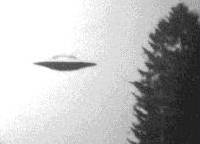Article/Document:
Growing Up With ET
Space.com, 15 November 2000
original source | fair use notice
Summary: If some day we detect a radio signal from a distant civilization, we’ll have to make some adjustments in the way we view ourselves. In the process, will we simply gain a little healthy humility about our place in the universe? Or would it be downright humiliating to compare our own meager accomplishments with those of more advanced extraterrestrials?
If some day we detect a radio signal from a distant civilization, we’ll have to make some adjustments in the way we view ourselves. After millennia knowing of no other intelligence in the universe than humankind, we could face a considerable challenge to our terrestrial egotism.
In the process, will we simply gain a little healthy humility about our place in the universe? Or would it be downright humiliating to compare our own meager accomplishments with those of more advanced extraterrestrials?
After all, if we do contact ET, they will probably have a much more advanced technology than we do. This argument is based on some simple statistics. If other civilizations are capable of interstellar communication for only about as long as we have been (a little over a half century), and after that they self-destruct, or simply stop trying to make contact, then SETI is very unlikely ever to find them.
Only those civilizations that continue to broadcast for hundreds, thousands or even millions of years are likely to be transmitting at the same time we’re listening. Thus, if we detect ET, they’ll likely be much older than we are.
But having an advanced technology doesn’t automatically translate into cultural superiority. ET may well have sophisticated forms of music, art and philosophy, but we can count on one thing: they won’t be the same as ours.
There may be enough similarities to allow for comprehension across interstellar distances. For example, some musical principles may have a universal foundation in mathematics — a tool plausibly shared by civilizations capable to sending radio signals. But would the symphonies of Sigma Draconis be *better* than those of Earth?
That question seems as meaningless as asking which is better -- a Navajo night chant, or a Peruvian wedding song. Each musical expression must be evaluated within the context of its own culture and history, and we can gain more by openness to new forms of music, than by trying to force the music of alien cultures into our preconceived notions.
In the cosmic scheme of things, humans are likely to find that we’re still in our "terrible twos" as civilizations go. And while it’s cute to watch a two-year-old bang away noisily on a piano, healthy development requires ever greater challenges, with corresponding mastery. Part of our legacy as humans is to grow.
If we make contact with ET, our broadened perspectives might lead us to have higher expectations of humankind in turn. Knowing that it’s possible to overcome the dangers of technological infancy, we might be heartened to try even harder to do the same on Earth.
Contact with other beings would not simply be a process of humanity continually coming up short. The more we would learn about other species, the more unique we would understand humankind to be. Just as siblings need to learn to develop their unique talents and visions, so too would contact with ET provide an opportunity for humankind to define its own identity.
We will find nothing close to humanity’s identical twin in space. Though any civilizations detected by SETI will share with us at least some technology for communicating across interstellar distances, the intelligence behind this technology could take on radically different forms. When these divergent morphologies are combined with distinct cultures and histories, the discrepancies we observe between cultures on Earth will seem trivial in comparison to the differences between humans and ET.
If someday we do detect ET, we will learn, like two-year-olds, that we are not at the center of the universe. And after realizing that — not just as a hypothesis, but as a scientifically confirmed observation — we will need to ask ourselves, "What now?" Will we accept the challenge of growing up as a civilization, moving beyond our "terrestrial twos," perhaps even asking what we can contribute, given the unique experiences and perspectives of our species and our society?
Who knows? Perhaps we’ll even decide that it’s time to stop banging on the piano, and start composing some interstellar symphonies of our own.
Read more articles on this topic:






